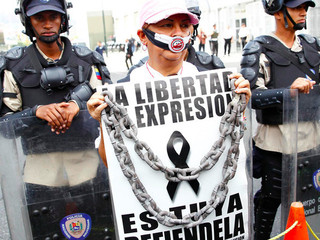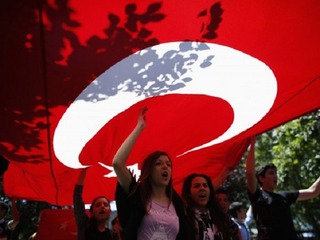The FDA outlines draft guidance on AI for medical devices
The agency also published draft guidance on the use of AI in drug development
Read more...
Turkey is having a bit of a social media problem—as in, people like to use it to talk to each other. Usually about cats doing silly things, but sometimes about government corruption. And roombas.
Just one week after banning Twitter, the Turkish government is now cracking down on YouTube—for more or less the same reason it cracked down on Twitter: some new info about some new government corruption that’s getting lots of attention on social media.
This time it was a conversation between Turkey’s foreign minister, spy chief, and a top general in a high-security meeting that centered on the military situation in Syria. Specifically, they discussed the Suleyman Shah Tomb, a military outpost that is officially considered Turkish land and has become a point of contention between Turkey and Syria. Terrorist groups in Syria have reportedly threatened to attack the tomb if Turkish soldiers don’t leave.
The conversation was leaked and published on YouTube, which earned the mighty wrath of Prime Minister Recep Tayyip Erdogan and the Foreign Ministry, both of whom vowed to impose the “heaviest penalty” on the perpetrators of such “treachery.”
In the meantime, so long, YouTube. It’s been fun.
Local elections in Turkey take place on March 30. Prime Minister Erdogan has been accused of corruption following anti-government protests last summer over the proposed demolition of Taksim Gezi Park in Istanbul. Citizens were outraged after a sit-in was violently dispersed.
Some 3.5 million people are estimated to have participated in one of the 5,000 demonstrations that erupted across the country, which were met with tear gas and water canons. While the mainstream Turkish media downplayed the protests, 11 people were killed and another 8,000 were injured. Much of the discussion of the events took place on Twitter, which Erdogan mocked, saying he would “wipe out” the service.
The Turkish government ended up banning Twitter over “illegal” links that the site refused to remove.
A Turkish court has since overturned the ban, ruling on Wednesday that the government could not ban the social networking service, and ordered the country’s telecommunications authority to restore citizens’ access to the service. Twitter users had found innovative ways to access the service in spite of the ban.
Interestingly, a recent Pew report found that only 58% of Turkish Internet users say that an uncensored Web is important to them. That number, however, is likely much higher among younger Internet users, who tend to favor Internet freedom more passionately than older users.
Social media censorship is nothing new. Twitter is currently banned in China, North Korea, Iran, and of course, Turkey. At any given time, YouTube is being blocked and unblocked in a number of different countries, including Afghanistan, China, Iran, Libya, Sudan, Bangladesh, and more.
The agency also published draft guidance on the use of AI in drug development
Read more...The biggest focus areas for AI investing are healthcare and biotech
Read more...It will complete and submit forms, and integrate with state benefit systems
Read more...

